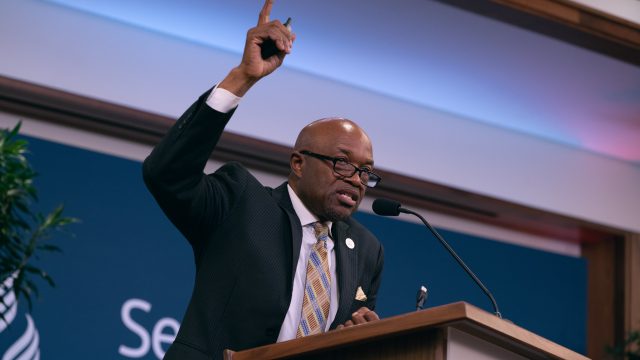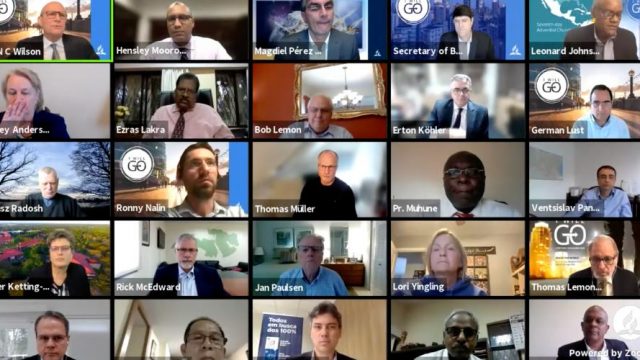And its significance for today

Revelation 12:1-6; 13-17 provides a brief outline of church history from the time of Jesus (verse 5) to the time of the end (verse 17), when the dragon, Satan (verse 9), makes “war with the rest of [the church’s] offspring, who keep the commandments of God and have the testimony of Jesus Christ” (verse 17).
The “rest of her offspring” are the faithful members of God’s church in the time of the end. The dragon that attempted to destroy the woman (the true church of God) throughout the 1,260-year period (verse 6), now directs his anger against the remnant of her faithful believers. This remnant is identified by two specific characteristics: They “keep the commandments of God” and they have “the testimony of Jesus.”
Whatever commandments we may think to include in the first mark, we must certainly include the Ten Commandments. Thus the first identifying sign of the remnant church is its loyalty to God’s commandments—all His commandments, including the fourth, the Sabbath commandment. In Revelation 12:17 God essentially says, “At the end of time I will have a visible church—the remnant church—which will be recognized by the fact that they keep the commandments as I gave them in the beginning, including the Sabbath commandment.”
The second identifying mark is explained in a vision in which John falls at the feet of the angel to worship him. But the angel says: “See that you do not do that! I am your fellow servant and of your brethren who have the testimony of Jesus. Worship God. For the testimony of Jesus is the spirit of prophecy” (Rev. 19:10).
The Spirit of Prophecy
What is “the Spirit of prophecy”? This phrase occurs only once in the Bible, only in this text. The closest parallel is found in 1 Corinthians 12:8-10. There Paul refers to the Holy Spirit, who, among other gifts, gives the gift of prophecy. The person who receives this gift is called a prophet (1 Cor. 12:28; Eph. 4:11). In Revelation, just as in 1 Corinthians 12:28, those who have the gift of prophecy are called prophets, so in Revelation 22:8, 9, those who have the Spirit of prophecy in Revelation 19:10 are also called prophets.
The situation in both passages is the same. John falls at the feet of the angel to worship him. The words of the angel’s response are almost identical, yet the difference is significant. In Revelation 19:10 believers are identified by the phrase those “who hold to [or have] the testimony of Jesus.” In Revelation 22:9 the believers are simply called “prophets.” Applying the Protestant principle of interpreting scripture with scripture leads to the conclusion that “the Spirit of prophecy” in Revelation 19:10 is not the possession of all church members in general, but only of those who have been called by God to be prophets.
That this is not purely an Adventist interpretation can be seen from the writings of other scholars. Lutheran scholar Hermann Strathmann, for example, says concerning Revelation 19:10: “According to the parallel 22:9 the brothers referred to are not believers in general, but the prophets. Here, too, they are characterized as such. This is the point of verse 10c. If they have the marturia Iesou [the testimony of Jesus], they have the spirit of prophecy, i.e., they are prophets, like the angel, who simply stands in the service of marturia Iesou.”1
The Witness of the Old Testament
Jewish readers in John’s day knew what was meant by the expression “spirit of prophecy,” because they were familiar with this phrase from the Targums (translations of the Hebrew Old Testament into Aramaic), where it appeared frequently. For example, where the Hebrew text in Genesis 41:38 says, “Pharaoh said to his servants, ‘Can we find such a one as this, a man in whom is the Spirit of God?’” the Aramaic Targum reads, “Pharaoh said to his servants, ‘Can we find a man like this, in whom is the Spirit of prophecy from the Lord?’”
Jews understood the expression “spirit of prophecy” as a reference to the Holy Spirit, who imparts the prophetic gift. New Testament scholar F. F. Bruce comes to the same conclusion: “The expression ‘the Spirit of prophecy’ is current in postbiblical Judaism: it is used, for example, in a Targumic circumlocution for the Spirit of Yahweh which comes upon this or that prophet. Thus the Targum of Jonathan renders the opening words of Isaiah 61:1 as ‘The Spirit of prophecy from before the Lord God is upon me.’ . . . In Revelation 19:10, however, it is through Christian prophets that the Spirit of prophecy bears witness. What the prophets of pre-Christian days foretold is proclaimed as an accomplished fact by the prophets of the new age, among whom John occupies a leading place.”2
So we can say that the visible remnant church, which according to prophecy exists after the 1,260-day period (after 1798), has two specific identifying marks: (1) It keeps the commandments of God, including the Sabbath command as God gave it; and (2) it has the testimony of Jesus, the Spirit of prophecy or prophetic gift, in its midst.
The Seventh-day Adventist Church
From its very inception in 1863, the Adventist movement has always claimed these identifying signs for itself. We Adventists proclaim the Ten Commandments, including the Sabbath; and we believe that as a church we have the testimony of Jesus, that God manifested Himself in the life and work of Ellen G. White. Thus the Seventh-day Adventist Church is a church prophetically foreseen, not just one church among many.
We Seventh-day Adventists are members of God’s remnant church. But this identification with the remnant church does not afford us exclusive status with God. Salvation is not guaranteed through church membership in any church; people are saved as individuals, not as a church. Nevertheless, it is a privilege to belong to the church God has called into existence for the purpose of proclaiming the three angels’ messages to a dying world.
1 Hermann Strathmann, “Martyrs,” Theological Dictionary of the New Testament, trans. G. W. Bromiley, 10 vols. (Grand Rapids, MI: Eerdmans, 1964-1974), vol. 4, p. 501.
2 F. F. Bruce, The Time Is Fulfilled (Grand Rapids: Eerdmans, 1978), pp. 105, 106.
Gerhard Pfandl, Ph.D., now retired, served as an associate director of the Biblical Research Institute of the General Conference.








